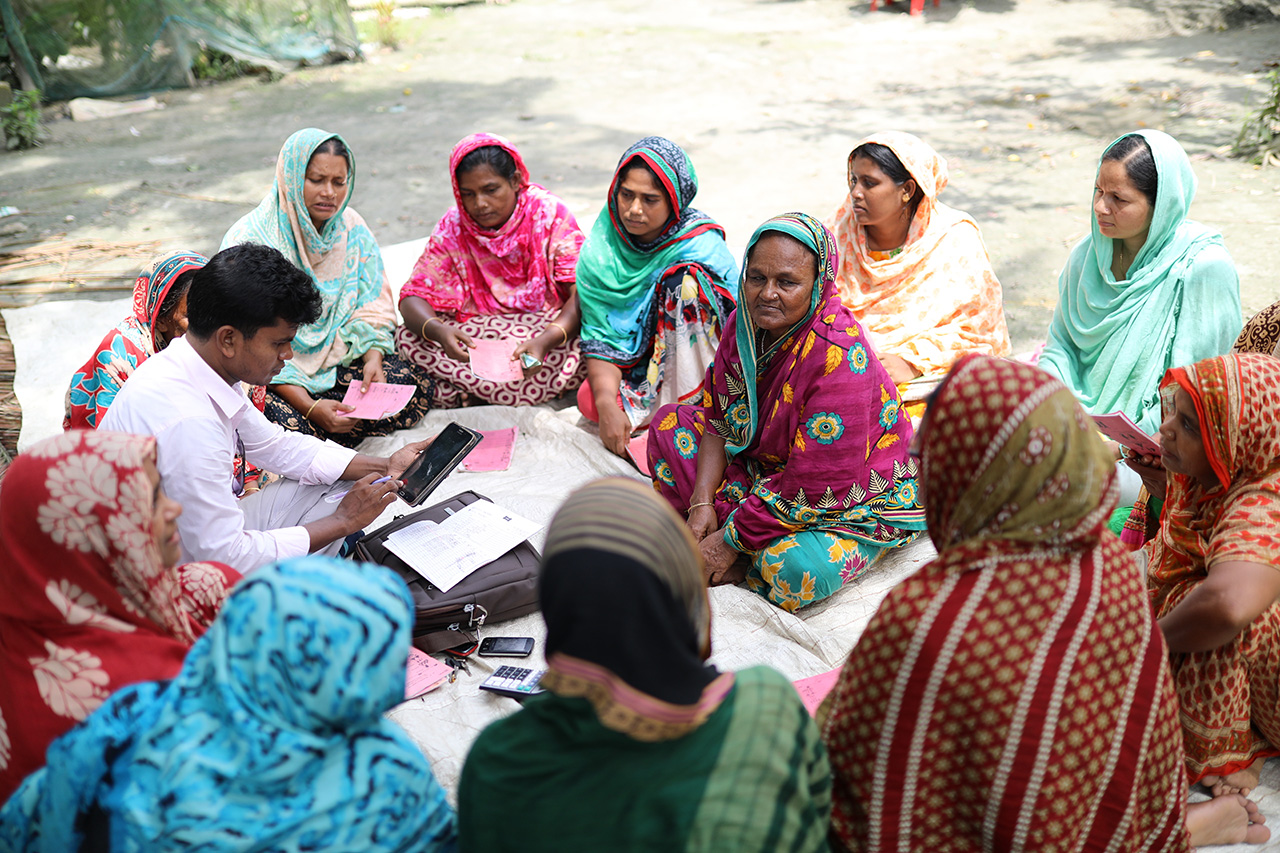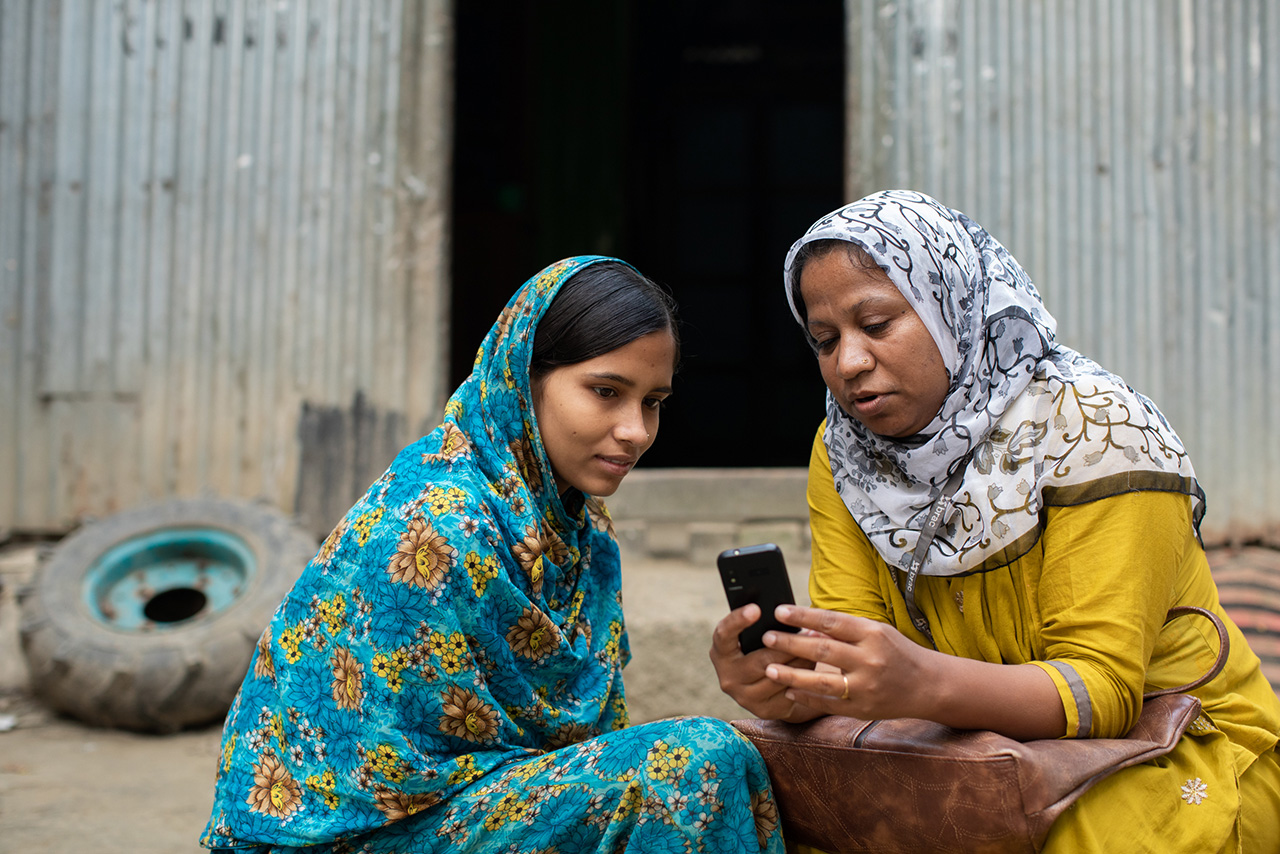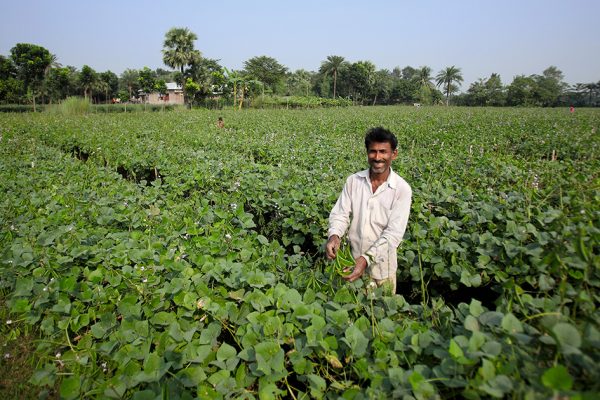Getting women to use mobile money: Insights from a decade in Bangladesh
Reading Time: 4 minutes
BRAC has been trying to figure out how to get women in Bangladesh to use mobile money for the last decade. Along the way, we have learnt a lot about what works and what doesn’t. In this blog, we share five insights to help organisations seeking to drive up the use of digital financial services in communities.
Azmira Khatun is a busy parent who lives in Rajshahi, northwestern Bangladesh. She takes her eight-year-old son to a local primary school every day, and manages all the household chores and finances. She was introduced to bKash, the most popular provider of mobile money in Bangladesh, when BRAC schools started requesting tuition fees via mobile money. She, like many other parents, did not use a lot of technology in her everyday life and was apprehensive about using it.
A training session from BRAC got the ball rolling, and Azmira was soon finding other ways in which mobile money could make her life easier. Every month she would wait in long lines, and often would pay significant costs for transport to get to particular shops or offices, in order to do two simple tasks – pay her bills and recharge her mobile account. With mobile money, access to both of these services was in the palm of her hand. She could do them from home, or anywhere else – and at any time, rather than having to plan and sometimes guess shop opening hours.
This kind of transformation at the community level has become a norm in Bangladesh over the last decade. BRAC has played a part in that, both within the organisation itself and in communities it works with, for the last decade – with the goal of ensuring women’s meaningful inclusion in digital financial services.
Here are five insights we learnt over the years:
Change has to start from within
In order to promote mobile money to communities, it was important for BRAC staff members to use it first, experience the value it presented in their own lives, and understand any difficulties that existed with using it. To do this, a competition was held, asking the staff members how BRAC could improve its service provision through mobile money. One of the winning ideas put mobile money into the hands of almost every staff member, every day – digitising lunch tokens at the staff canteen. The idea came from one of BRAC’s support staff, Mohibul Islam. One of his jobs, every day, was to collect cash from any staff member who wanted to eat lunch at the canteen the next day, deposit it at the canteen, and then hand out tokens to each staff member. Akram Haider from BRAC’s Technology department took Mohidul’s idea forward, and created a portal that allowed people to book their own tokens and connect individual mobile wallets to it so that everyone could pay for it themselves. The result was a much more flexible system – people could buy tokens whenever they wanted, as well as cancel and exchange tokens. It also got the staff members using and seeing the benefits of mobile money. Similar to Azmira’s experience, lunch tokens opened the door to many other services for staff members being digitised, including mobile and transport allowances.

BRAC programme officers listening to clients and clarifying their doubts about mobile money in a village organisation (VO) meeting. © BRAC 2023
Meet people where they are
People need to see real life demonstrations of how a system or product can make their lives easier. When they see something adding value to their daily life, saving them time and resources, that is when mobile money starts to make sense to people. Women shared with us where they pay in cash—schools and local markets for example; what it costs them—time and resources, and what they would be doing if they did not have to pay in person. When they saw how mobile money could be used to make their lives easier as they don’t have to make payments in person in cash, they became interested. That interest was then followed up with training on mobile money. Soon, they started to find new avenues where mobile money could be used. The key here is to have a human-centricity in devising solutions. Mobile money allowed women to start their own small businesses within their communities and enabled them to receive remittance from family members residing abroad directly into their mobile wallets.
When done right, innovation costs are small but provides big savings
One of our pioneering projects in promoting mobile money – digitising lunch tokens – required a desktop computer, a printer, a kiosk, and a software. The kiosk was designed by the BRAC Technology division and built from scratch. Devising such frugal yet effective solutions ensures we can extend our services to more people, consistently.
You might not be able to crush patriarchy in a day- but you can set the stage for it

Women teaching each other how to use the various features of mobile money. © BRAC 2023
When BRAC started this journey, mobile money was still very new in Bangladesh. Limited literacy among women, low phone ownership, minimal awareness, restrictive gender norms, and poor mobile money infrastructure meant challenges were plenty.
We knew that we could not crush patriarchy in a day but small yet consequential initiatives could be taken. For example, training women to use mobile money on their own – was one such initiative. It started from scratch—women with no literacy were taught letters and numbers with the help of chalks and slates. Those who never held a phone before were handed feature phones to familiarise themselves with button functions. Learning was gamified too—women were asked to send each other a token amount of money through bKash and the first successful payee would be called ‘bKash apa’. We found that we could make small changes which might not have been able to solve the larger problem on its own but it created the launching pad for the solution.
Investing in partnerships, building the whole system.
At the beginning of BRAC’s mobile money journey, the digital financial services ecosystem in Bangladesh was in its infancy. For people to see mobile money’s relevance and benefits in their lives, it had to be connected to essential services. The scenario has changed in the last decade. Key to this transformation is forging partnerships whilst staying true to the vision of change. For us, that partner was bkash. Continuing this drive to invest in partnerships between digital financial service providers and public-private institutions has led mobile money to grow ten times in ten years in Bangladesh. Mobile money is now commonly accepted by e-commerce platforms, health services, educational institutions etc. At the national level as well, mobile money-friendly policies are in the making, resulting in a rapid drive up in the usage of digital financial services. These initiatives tie back to Azmira’s experience of finding an inclusive space in the world of digital financial services where one can pay most of the utility bills as well as make other payments with mobile money.
This year, we have developed a Digital Financial Services (DFS) playbook documenting BRAC’s ten years of DFS journey in Bangladesh—lessons, challenges, and successes that came with it. To learn more, please visit https://innovation.brac.net/.
BRAC’s Social Innovation Lab’s (SIL) mission is to support the organisation’s work of empowering people and communities in situations of poverty, low literacy, disease and social injustice. SIL tests, prototypes, adapts and collaborates with programmes to achieve large-scale, positive changes in the communities where BRAC works. In line with BRAC’s economic and social programmes that work to create opportunities for everyone to realise their potential, SIL incubates, adapts and mainstreams innovation within and outside BRAC by generating quick insights and redesigning service delivery models.
Farah Masud is Innovation Associate at Social Innovation Lab, BRAC.
Erina Mahmud is Knowledge Management Consultant at Social Innovation Lab, BRAC.





